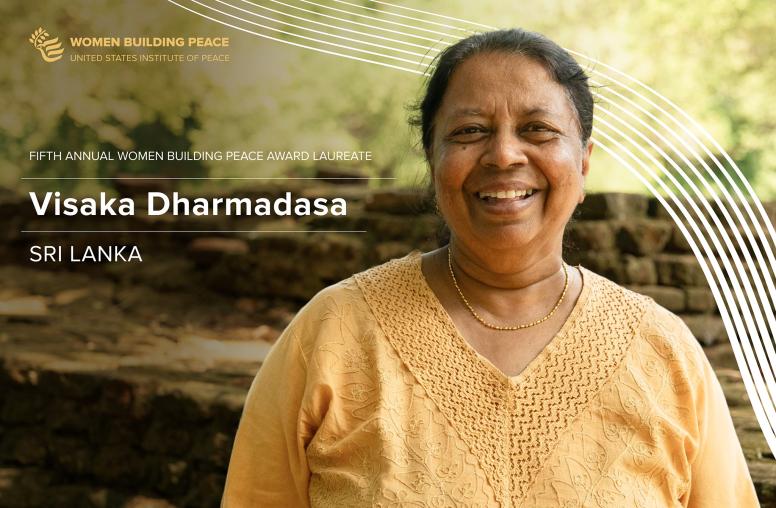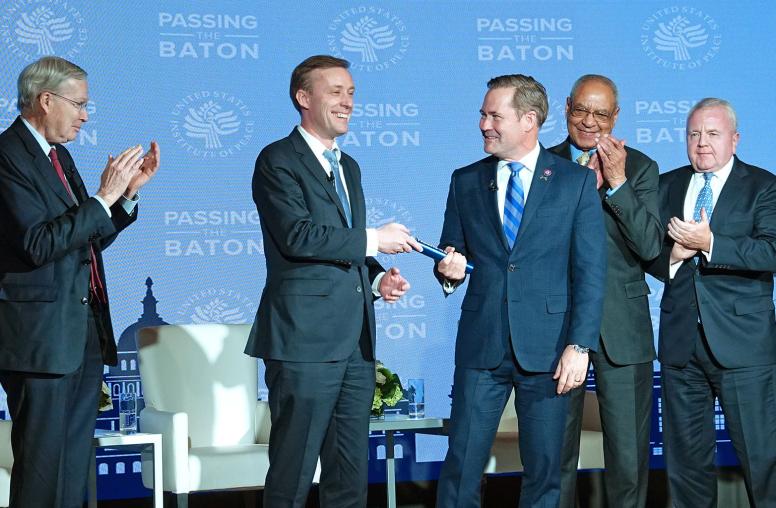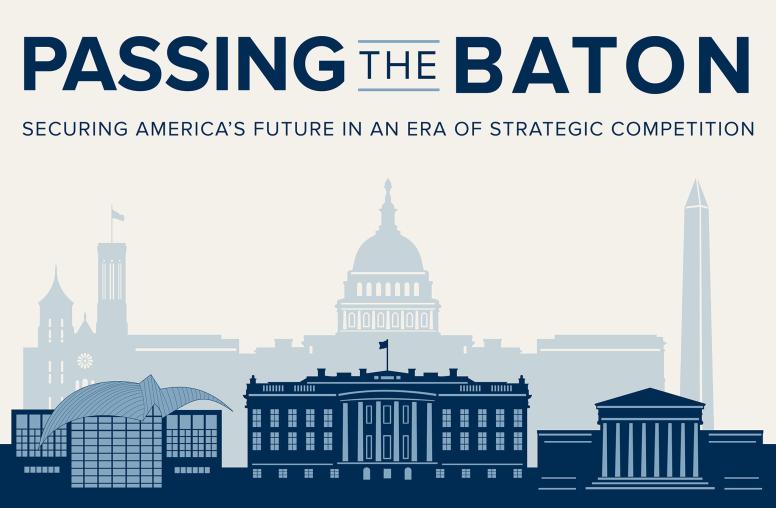New Senior Fellows to Join U.S. Institute of Peace
Institute Announces 2004-2005 class of Senior Fellows in the Jennings Randolph Fellowship Program.
WASHINGTON – The U.S. Institute of Peace is pleased to announce the selection of its 17th class of Senior Fellows in the Jennings Randolph Fellowship Program. Named in honor of former U.S. Senator Jennings Randolph of West Virginia, a founder of the Institute, the program affords leading policy practitioners and researchers opportunities to examine non-violent approaches to the resolution of international conflict and post-conflict stabilization.
In welcoming the new group, most of which will be in residence at the Institute from October 2004 through July 2005, Fellowship Program Director Joseph Klaits said, “This group continues the Institute’s tradition of attracting outstanding experts who are addressing issues of vital concern to the nation. Their projects consider problems of terrorist threats in South and Southeast Asia, child soldiers and Muslim/Christian divisions in Africa, U.S. relations with Syria and Pakistan, internally displaced persons in conflicts around the globe, intractable conflicts in several world regions, and the building of a sustainable peace in Iraq. This group includes, among other luminaries, a retired Pakistani ambassador, the dean of a law school in the Philippines, a prominent Indian journalist, a leading American scholar on Iraq, two distinguished historians, and a senior State Department official."
In addition to addressing their special projects, fellows participate in the Institute's public outreach efforts by briefing the media, Congress, policymakers, and the public on international issues. Dr. Klaits said, "More than 200 Senior Fellows have profoundly enriched the research, education, and training programs at the Institute over the years. Alumni from the fellowship program are contributing to the advancement of international conflict resolution worldwide.” Books and reports resulting from fellowships are published by the U.S. Institute of Peace Press and are available both in print and on the Institute's website.
Senior Fellows are selected by the Institute's board of directors following an international competition. The submission deadline for the Senior Fellow Program is September 15 of every year. Winners are chosen the following April. A list of 2004-2005 fellows and their project topics follows. A full list of former fellows along with their project topics and application material can be found at www.usip.org/fellows/reports.html.
For additional information about the program, please contact Kay King, Director of Congressional and Public Affairs at (202) 429-3824 or at kking@usip.org.
U.S. Institute of Peace 2004-2005 Jennings Randolph Senior Fellows
(Duration of Fellowship is October through July, unless indicated otherwise.)
Dr. Zachary Abuza Associate Professor of Political Science, Simmons College The Future of the MILF: Internal Dynamics and the Implications for Terrorism and Security in Southeast Asia (January 2005 – September 2005)
Professor Benedicto Bacani Dean, College of Law, Notre Dame University, Philippines Autonomy and Peace: Lessons from Southern Philippines
Ms. Betty Bigombe Senior Consultant, World Bank Prevention of Recruitment of Child Soldiers and their Demobilization and Reintegration: Where Do We Go From Here?
Professor Daniel Chirot Professor of Sociology, University of Washington The Muslim/Christian Divide in West Africa: Can a Religious War Be Prevented?
Mr. Touqir Hussain Ambassador (retired), Pakistan Re-engagement with Pakistan: Issues for U.S. Foreign Policy
Professor Melvyn Leffler Edward R. Stettinius Professor of History, University of Virginia Why the Cold War Lasted as Long as It Did (September 2004-December 2004; July 2005- December 2005)
Professor Moshe Ma’oz Professor Emeritus of Islamic and Middle Eastern Studies, Hebrew University of Jerusalem Washington vs. Damascus: Quo Vadis?
Dr. Phebe Marr Research Professor (retired), National Defense University Envisioning Iraq's Future: Developing an Alternative View
Mr. Anthony Regan Fellow, Australian National University Sustainable Conflict Resolution and Post-Agreement Peace-Building Processes in a Case of Apparently Intractable Conflict - Generalizable Lessons from the Bougainville (Papua New Guinea) Peace Process (December 2004 – September 2005)
Dr. Jacob Shamir Senior Lecturer, Hebrew University of Jerusalem Public Opinion in the Israeli-Palestinian Conflict
Mr. Donald Steinberg Director, Joint Policy Council, Department of State Internally Displaced Persons: Caring for the Stepchildren of Conflict (December 2004-September 2005)
Mr. Praveen Swami Special Correspondent, Frontline Magazine, India Islam, Ethnicity and Nationalism: A History of Terrorism in Jammu and Kashmir



